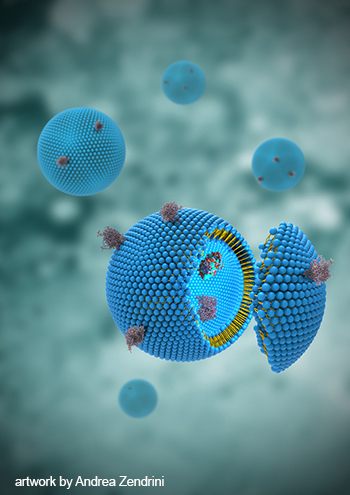
Extracellular vesicles (EVs) are natural cell-derived nanoparticles containing bioactive proteins and RNAs, which are newly recognized as the universal agents of intercellular and inter-organismal communication, in both normal and pathological processes.
EVs are reshaping our perspective on life sciences, environment and public health. They are under intensive investigation as early disease multi-biomarkers, while EV-based personalized therapeutic agents and vaccines have produced enticing results in early-phase clinical trials. However, EV exploitation is not supported by current manufacturing methods, which are inadequate in terms of purity and reproducibility or yield, time and cost.
evFOUNDRY targets a breakthrough technology able to streamline production of therapeutic EVs from sustainable sources, drawing the baseline for future EV bioprocessing, which is necessary for effective EV medical translation (large clinical trials and regulatory initiatives) and provides access to new EV applications (nanotechnology, nutraceuticals, cosmeceuticals, veterinary). To meet the challenge, evFOUNDRY will unravel how EVs and EV fluids interact with surfaces and leverage it to develop the first device for continuous production of high-grade EVs from milk and parasites, which are the most promising scalable sources of EVs with immune modulatory properties.

Major objectives include:


evFOUNDRY has received funding from the European Union’s Horizon 2020 research and innovation programme under grant agreement No 801367